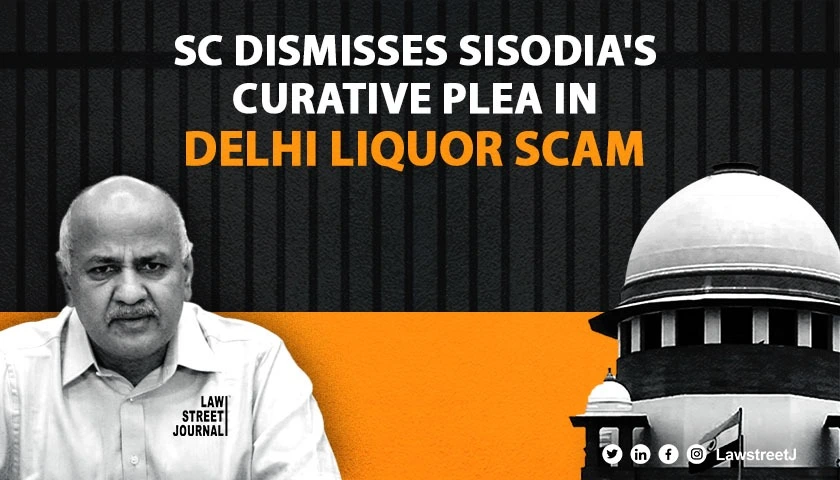NEW DELHI: In a further setback to AAP leader and former Delhi Deputy Chief Minister Manish Sisodia, the Supreme Court has dismissed a curative petition filed by him against the top court order rejecting his bail plea in connection with cases under the Delhi excise policy scam.
In proceedings conducted inside the judges chambers, a bench of Chief Justice of India D Y Chandrachud and Justices Sanjiv Khanna, B R Gavai, and S V N Bhatti rejected his petition.
In its order of March 13, the bench said, Application for listing the Curative Petitions in open Court is dismissed. We have gone through the curative petitions and the connected documents. In our opinion, no case is made out within the parameters indicated in the decision of this court in Rupa Ashok Hurra vs Ashok Hurra.
In December 2023, the court had rejected Sisodia's review petition against the order rejecting his plea for bail. The court had also declined an open court hearing and held that no grounds of review were made out.
According to SC Rules, a review petition is decided in judges chamber through circulation of documents.
On October 30, 2023, the court had dismissed two bail pleas by Sisodia, relying upon the CBI's claim that the liquor policy, now scrapped, facilitated getting kickbacks or bribes from the wholesale distributors having substantial market share and turnover.
Sisodia, 51, was arrested by the CBI on February 26, 2023.
Also Watch - Delhi Liqour Scam || Manish Sisodia remanded to CBI custody || Legal Analysis
The CBI had lodged the case on August 17, 2022 under Section 120B IPC and Section 7 of the Prevention of Corruption Act, 1988. A total of 15 persons were specifically named in the FIR, including Sisodia, who was the deputy Chief Minister as well as Excise Minister of the Government of NCT of Delhi (GNCTD) for various irregularities in framing and implementation of the now scrapped excise policy for the year 2021-22.
Sisodia was also separately arrested by the Enforcement Directorate also in a case of money laundering in connection with the scam.
The agencies claimed that AAP used the illicit money obtained through the policy for campaigning in the Goa assembly elections. They also claimed that AAP was a beneficiary of the kickbacks received from stakeholders who got liquor licences as part of a quid pro quo.

















